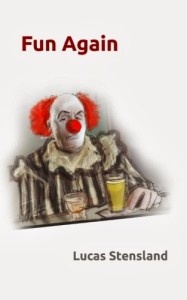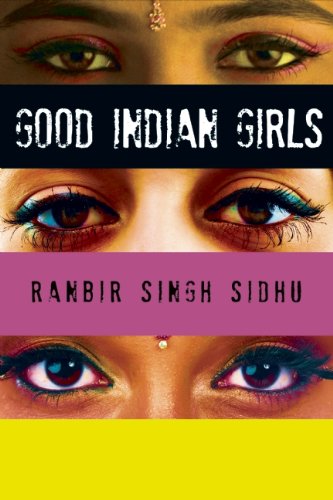 |
Lucas Stensland’s most recent book is Fun Again, a collection of short poems from Yet To Be Named Free Press (UK). In 2011 he co-authored my favorite thing (bottle rockets press), which was shortlisted for the Touchstone Distinguished Book Award. He is the co-founder of Montague Street Journal: The Art of Bob Dylan and author of the novel Name Your Poison. He lives in Brooklyn with his cats Delia and Sadie.
I was delighted to get to interview Stensland, who I know from his submissions to 7×20 (which I used to edit). And I blurbed his book! I said, “Stensland writes with an unerring ear for the rhythms of marriage and breakups. His haiku are fierce, uncompromising, and will inspire you to read them aloud to the stranger sitting next to you at the bar. Pointed and funny, these short poems don’t spare anybody, including the poet, from his sharp wit.” |
Can you say a little bit about the genesis of your most recent book?
I submitted some poems about a year ago for consideration in an anthology Yet To Be Named Free Press was doing about, I think, mental health issues. Brendan Slater, its editor, rejected all of my poems, but said he enjoyed them; they just didn’t fit the tenor of the collection. I believe he singled out the below as ones he enjoyed.
I’ve always had
the same penis
she’s had others
and
one night stand
two
too many
He asked if I’d be interested in putting together a proposal for a book of humorous short poems. It grew and shifted direction from there.
Though in the end the book morphed into a sort of chronology of breaking up and drinking through long and wasted years, I tried to maintain a droll tone—especially with riffraff poems, the stand-alone jocular ones that didn’t further the narrative. The end, in a way, is upbeat—but I wanted to avoid any kind of disingenuous statements of eternity: that life will now be free of strife. Fun Again isn’t about twelve-stepping, getting sober or finding true love. It’s just about a struggle to have and be fun again.
What is your writing process?
I used to carry tiny notebooks with me, in my back pocket or bag. I was a lot more prolific when I did. It stopped a few years back when I got a smartphone. Now I write in its notepad app. With my phone I look much less pretentious when writing in public, but I write far less. My smaller turn-out isn’t entirely blamed on my adoption of the smartphone, but writing with pen and paper was more enjoyable and yielded greater results. I liked having a history of all my drafts in tiny notebooks. But I got lazy and now just phone it in.
Which writers inspire you?
I like simple, direct writing. My taste in literature is pretty stereotypical for my demographic. I’m fairly certain thirtysomething men living in Brooklyn are issued Bukowski and Carver books by the State Department. And I fall in line. As for Carver, I always preferred his Gordon Lish-edited works. In college when I read Carver’s “Fat” and got to the unexpected end (“‘My life is going to change. I feel it’.”), I understood I was reading something special, something that didn’t leave me cold like all that magical realism or Milan Kundera or Tom Robbins. I never cared for Bukowski’s poetry, but I loved his novels. The end of Women where he feeds the pregnant cat influenced me a lot; it was subtle and organic, and it did not draw attention to itself in a precious literary way.
| This interview is part of Intermittent Visitors: a multi-author blog tour. |

